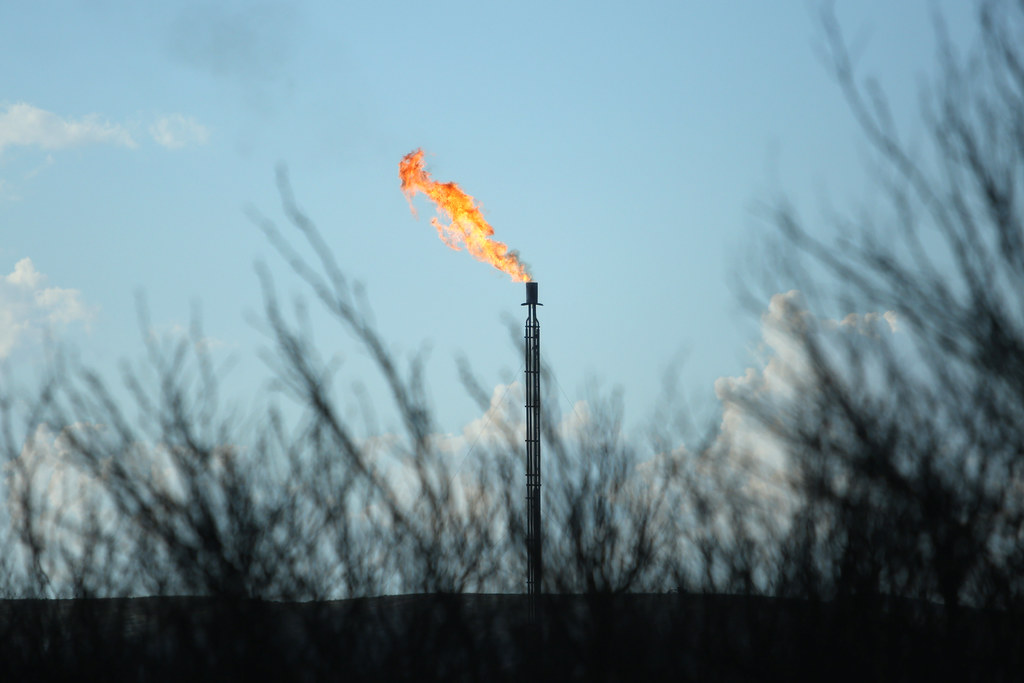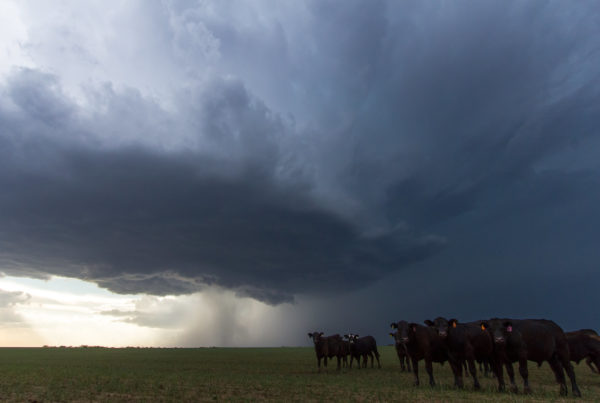The axiom, bigger is better may not apply to everything in Texas. For one thing, the Permian Basin is cranking out so much natural gas that producers are burning it in high volumes Bloomberg reports that at the end of last year, producers were burning enough fuel to power every home in Texas.
Matt Smith, director of commodity research at Clipper Data, says the burning, or “flaring,” happens in other oil-producing countries, and the U.S. ranks No. 4 among them in terms of total gas burned. Flaring happens across the U.S., but it’s a growing practice in Texas.
“We’ve seen flaring prevalent elsewhere … particularly in the Bakken Shale up in North Dakota,” Smith says. “But now, as oil production ramps up in Texas, we’re seeing the Permian Basin join that.”
Flaring happens when there isn’t enough pipeline to transport all of the extracted oil, Smith says. And Texas is in the midst of an oil boom. Since natural gas is a byproduct of that extracted oil, there’s more of it that needs to be burned.
“The amount of gas actually flared in the Permian rose by about 85% in Q4 of last year,” Smith says.
He says companies are trying to build new pipelines, which could help reduce flaring, and possibly reduce air pollution as a result. But there’s so much of it coming out of the Permian Basin, those pipelines likely won’t be enough.
“It actually went negative last month,” Smith says. “They were paying people over $3 … to take that gas away.”
Even if companies tried storing the gas on site, Smith says just like the pipelines, the tanks wouldn’t be built fast enough to keep up with production. He says the only real option to stop flaring is to decrease the amount of extracted oil.
The U.S. is on track to lead oil production, worldwide, by 2025, and much of that will be due to what’s coming out of the Permian Basin. More oil will probably mean more flaring. Smith says a core problem is that companies don’t really have a plan for the natural gas; oil is their primary commodity. He says they don’t try to capture and sell it because they don’t have the financial incentive to do so.
“The natural gas is an afterthought, essentially, because they’re making the money on the oil,” Smith says. “You’re gonna have this investment to get that infrastructure in place, but it’s mainly going to focus on the oil as opposed to the natural gas side of things.”
This story is part of our ongoing series, “Untapped: The New West Texas.’ It is produced with support from The Cynthia and George Mitchell Foundation.
Written by Caroline Covington.















